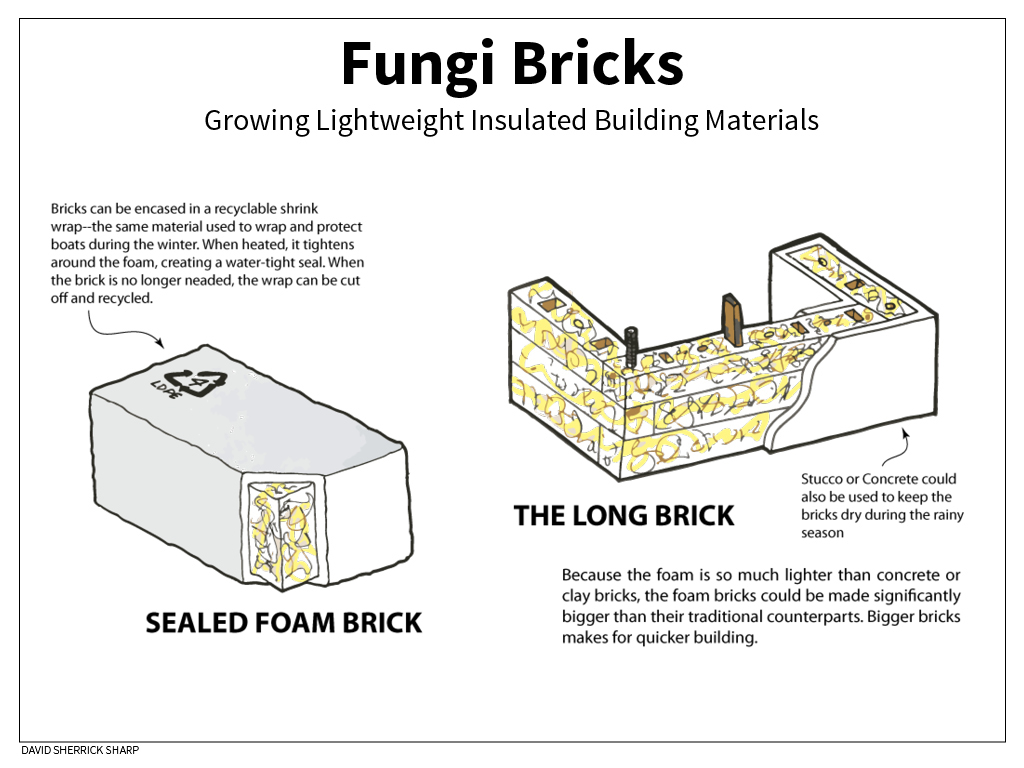Fungiculture For Earth University
Finding Sustainable Uses For Farm Wastes At
An Agricultural University In Costa Rica

This project was part of a sponsored studio at RISD that partnered with Earth University, an organic agricultural university in Costa RIca. Our task was to find productive uses for the university's primary agricultural wastes, the straw and hulls leftover from rice harvesting and bagasse, the dried mulch that is leftover after removing sugar from sugarcane.
WHAT IS FUNGICULTURE?
Fungiculture is the growing of fungi. For more details see the Fungiculture Primer at the bottom of this page, but here are the basics: When you add fungal spores (kind of like seeds) to certain organic materials, the spores grow into a vast spongey network of fibers called mycelium. The mycelium digests the organic matter and produce mushrooms. Mycelium also has some awesome properties, which I will discuss below.

SUPPORTING THE UNIVERSITY'S ECOLOGY:
The first portion of my project, focusing on soil and water health, was based on the work of mycologist Paul Stamets. Myco-marshes were one of the ways I applied his research to Earth University.

FINDING NEW APPLICATIONS FOR MYCELIUM FOAM:
The second portion of my project was focused on finding uses for the foam-like structures that the fungi build in their growing medium. This was inspired by the work of Ecovative Design, a firm pioneering the growing of mushroom-based foams. When I began this project, Ecovative's focus was on creating biodegradable packaging materials (they have since expanded to SIP building panels).
I was interested in finding other ways that Earth University could use this mushroom foam.



A FUNGICULTURE PRIMER:

How To Grow Mushrooms & Mycelium Foam:

